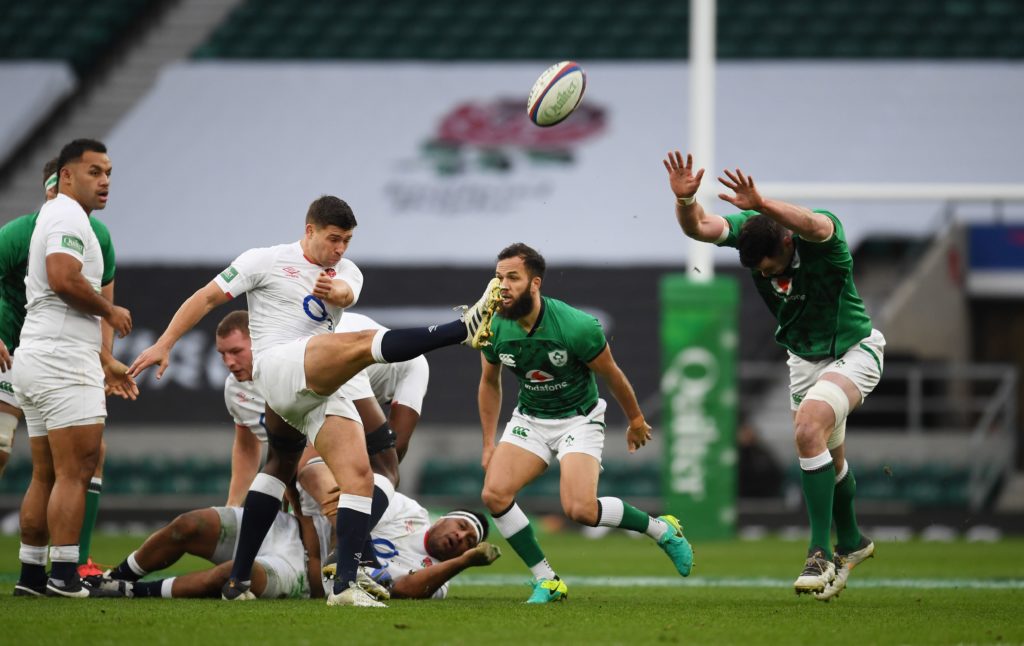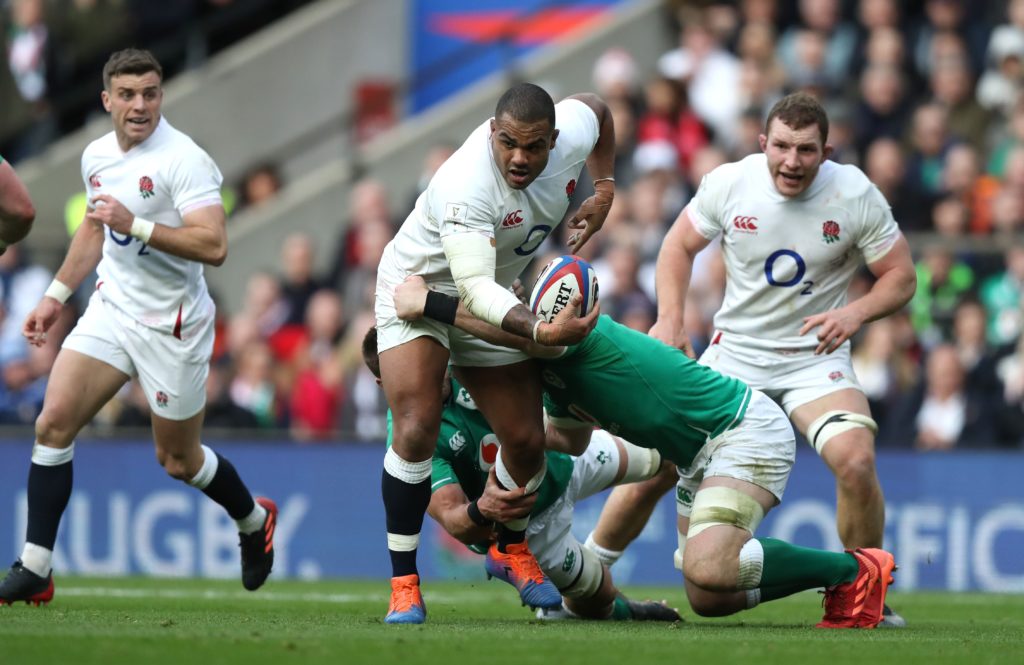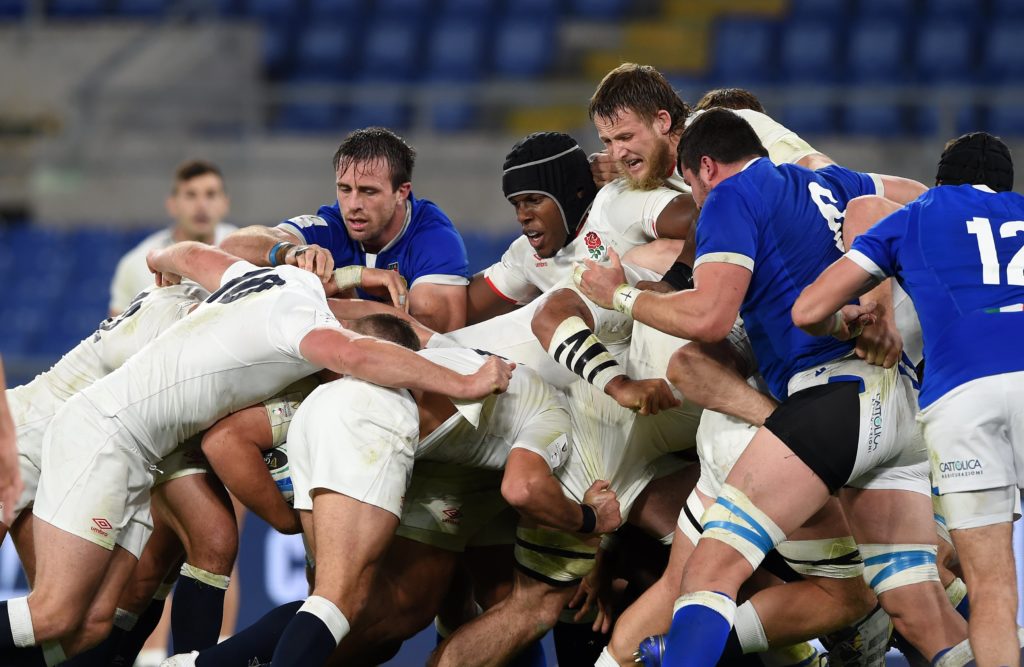Before we start, I should probably make one thing clear: I’m a technological dinosaur. It’s a bit scary to admit but I have now officially turned into my parents. The TV remote has become a thing of wonder, ‘What does this button do?’ If I can figure out a pub’s WiFi, I hold my phone aloft like it’s the Webb Ellis Trophy. I’m behind the times, more old school than Grange Hill’s Mr Bronson.
The same can be said for rugby, where I’m even more of a traditionalist and fret about where the game is heading. Have coaches become too data-driven, too reliant on statistics? Are the players now becoming automatons, Skynet-programmed T-1000s to search and destroy any flair in the game?
I’m not alone in saying some of England’s Autumn Nations Cup games proved to be a cure for insomnia. Ben Youngs’ constant box-kicks were like being injected with a hefty dose of ketamine. A win is still a win, however it may come about, and Eddie Jones will rightly point to the gleaming new trophy in Twickenham’s cabinet. But, a couple of Jonny May moments of magic aside, where was the creativity, the off-the-cuff rugby to stir the soul and have you giddily leaping off the sofa and bashing your head on the light shade?
Rugby seems to have become so scripted, where everyone knows their lines 10 phases in advance. Exit strategies, playing the percentages, going through the phases, waiting for the mistake… it all leaves me a bit cold.
But that was before I talked to Ross Hamilton, a former performance analyst for Saracens and England and who now provides the stats and insight for BT Sport’s rugby coverage.

Talk about having your eyes opened, it was like having laser surgery. Hamilton convincingly argues that giving the coaches and players cold, hard facts actually empowers them to play a more open game rather than a restricted one.
The more information you have, the better decision-making, the more successful you are. Information is power.
Perfomance analyst Ross Hamilton
“The fans may want to see a fun, open and exciting game, but if you place yourself as a coach, a player, or someone involved in the organisation, you want to be as successful as you can,” said Hamilton. “So the more information you have, the better decision-making, the more successful you are. Information is power.
“My argument as an analyst would be those structures that you set in place should facilitate you to do whatever you want and actually open up games, to be played with flair or with style.
“No coach these days says, ‘This is your job and you have to do this from first phase or second phase’. They’ll put players in a position where they have multiple options and they’ll know what will likely be the best one. It’s then down to the players.
“For example, England prop Kyle Sinckler is an enormous ball carrier and he’s also a very good ball player. The defence is on the back foot, having to double-tackle him at least because he’s such a good carrier. He attracts lots of defenders, but has the ability to put the ball out the back and the play goes round him. That’s the freedom within the structure.
“If you don’t have that structure in place, he has no options, no way of deceiving the defence, no way of setting them up to think he’ll play in one way then play another. If he had no guys around to support him, nobody to pass to and everyone knows he’s carrying, they’ll absolutely melt him.
“But if he has all the data and information we give him, he has all the options to play an expansive game.”

If someone had mentioned match stats to me before my conversation with Hamilton, I’d automatically think of the OPTA ones flashed up at half-time and full-time on our TV screens. Tackles made/missed, carries, passes, kicks, possession percentage, etc. I didn’t have a ‘Scooby’ about the detail and minutiae that performance analysts take it to. It’s not just another level but a different planet to the one us tech dullards inhabit. Prepare to have your mind scrambled…
“A tackle or a carry are the really obvious stats but there are so many extra elements that link into that,” said Hamilton.
“You’re looking at who made the pass to the guy who’s carrying, then there’ll be two or three guys involved in the ‘clear-out’, two or three guys involved in the tackle, another couple of guys ‘jackaling’ for the ball… there are so many people and elements in one area.
“We also code the phase you’re on, where the pass came from, the width of the attack, the qualifier of carry – so whether it was a ‘pick-and-go’, a ‘one-out’, wider out, or from a restart kick. Then there’s the dominance of the collision, gain-line success, the outcome – complete or incomplete, the speed of the ball from the ruck. And that’s just one instance, one carry. So you do that again for the next carry and the one after that…
“We look at all the players who pass the ball, the position on the pitch, line breaks – where they happened, whether they were converted. All your kicks and passes – plus, neutral or negative, so whether you put someone through a hole, standard pass or was an error.
“Everything to do with the ruck – whether you were first, second or third to arrive, whether you’re effective or ineffective. On the other side defensively, whether you’re first in, ‘jackaling’ or supporting.

“You code all the opposition’s lineouts and their calls so you can provide your players analysis packages with how many times they drive the ball, how many times they play off the top, how many times they peel off the front or back, whether they tend to throw to the front, middle or back.
“That’s why it takes so long for every element to be coded – about 12 hours for your team and another 12 hours for the opposition. But you want to be in a position that when coaches say, ‘I want to see where our line breaks happened and whether we finished them or not’, we can say, ‘Well, we finished two out of 10, this is where they happened and that can be something to look at in training’.”
The problem for clubs is they do not have the financial clout to match England, who employ a private company to do their analysis so that “any time any questions arise, they can answer them straight away”. Hamilton believes it is untapped gold mine of information that teams would be insane to ignore.
“At a club level, because of the lack of resources, there might be only one analyst there. They have to do it on a very ad hoc basis, very specific, picking and choosing what bits they do, and that’s where the analysis falls down,” he said. “It’s too limited, too restrained. The more data you have, the better. It just doesn’t have enough money or people in that department yet.
“But coaches and players are becoming more and more reliant on performance analysis, more interested in it and how it can develop your team.
“I believe 100 per cent that increasing performance analysis teams would be huge for clubs, so that they could try to stay one step ahead.”
Thinking subjectively isn’t good enough any more, it’s not an acceptable standard. If you have an opinion, it has to be backed up by data, it has to be objective.
Hamilton has been working as an analyst for BT Sport for four years and has nothing but praise for recently retired stars such as Ugo Monye and Sam Warburton, who he says understand both the data provided to them and how to use it. He is less polite, to put it mildly, when it comes to the former players and coaches that fill the seats of the Sky Sports, BBC and ITV studios “who retired 25 years ago”. He believes they are too subjective, out of date and out of touch with the modern game.
“When you think about the old-school guys, they think very subjectively,” said Hamilton. “That isn’t good enough any more, it’s not an acceptable standard. If you have an opinion, it has to be backed up by data, it has to be objective.
“If somebody thinks rugby is subjective, they’re wrong; if they think it’s objective, they’re wrong. It has to be a mixture of both, but that’s where the game is changing, the balance between subjectivity and objectivity. It’s probably 50-50 now but we’re leaning toward more objectivity, more data, more analysis.
“Any kind of business, on the Stock Exchange or Wall Street, would they ever make decisions based on their feelings or one guy’s opinion? Of course not. You have data, sales reports, evidence that you use to make decisions that, eventually, could cost you a lot of money.
“If you’re talking about signing players, contracts worth up to £1million, how can you make a million-pound decision on opinions rather than data? If you try to do it otherwise, you’re mad and are going to be left behind.”
So, the message is writ-large in the modern era, bow down to data, or be kicked into touch.
More stories
If you’ve enjoyed this article, please share it with friends or on social media. We rely solely on new subscribers to fund high-quality journalism and appreciate you sharing this so we can continue to grow, produce more quality content and support our writers.


Comments
Join free and tell us what you really think!
Sign up for free